In our journey toward more sustainable lifestyles, we encounter plant-based plastics as a potential solution in the realm of packaging. These eco-friendly polymers derived from renewable materials, such as corn, starch, sugarcane, seaweed, and bamboo fiber, offer an alternative to conventional petroleum-based plastics, which contribute significantly to plastic pollution and waste.
Still, it’s crucial to understand the difference between bioplastics and compostable plastics to make informed choices in our day-to-day lives and amplify their positive impact on the environment.
Key Takeaways
- Plant-based plastics have the potential to reduce plastic waste and pollution by using renewable materials instead of petroleum-based plastics.
- Not all plant-based plastics are biodegradable, and it’s essential to understand the distinction between biodegradable and compostable materials when making eco-conscious choices.
- Compostable plastics are those that can safely break down under specific composting conditions, whereas biodegradable plastics are not guaranteed to decompose entirely.
- TIPA’s compostable packaging solutions exemplify the promise of plant-based plastics in the food industry, showing their potential for widespread adoption in sustainable packaging applications.
- Supporting the transition to plant-based plastic packaging calls for consumer awareness, proper waste management, and corporate responsibility in material usage and disposal.
Understanding Plant-Based Plastics: Origin and Composition
Plant-based plastics have gained considerable attention due to their potential to reduce our reliance on petroleum-based plastics and contribute to a more sustainable future. In this section, we will explore the origin and composition of plant-based plastics, distinguish between plant-based, bio-based, and bioplastic terminology, and assess their biodegradability.
What Exactly Are Plant-Based Plastics Made Of?
Plant-based plastics are composed of polymers derived from various renewable feedstock sources such as corn, starch, sugarcane, and other biomass materials. By converting organic matter into polymers, manufacturers can create sustainable materials that substitute commonly used petroleum-based plastics in many applications.
TIPA (tipa-corp.com) points out that plant-based plastics are sourced from plant-derived molecules, offering an environmentally friendly alternative to petroleum-based plastics, which are sourced from a finite resource of crude oil.
These plant-based plastics are aligned with environmental initiatives aimed at minimizing plastic waste and preserving the earth’s natural resources.
Distinguishing Between Plant-Based, Bio-Based, and Bioplastic Terminology
- Plant-based plastic: Plastic derived from plant materials
- Bio-based plastic: Similar to plant-based plastic, it refers to plastics made from renewable biomass resources
- Bioplastic: Plastic that is derived from biomass, is biodegradable, or both
The distinctions between these terms primarily concern the feedstock source and whether the end product is designed to biodegrade. It is essential to understand these differences when discussing the sustainability of various plastic alternatives.
Assessing the Biodegradability of Plant-Based Plastics
Not all plant-based plastics are biodegradable; it depends on their chemical composition. For a plastic to be biodegradable, it needs to disintegrate over time and be digestible by microorganisms. However, this is not true for all plant-based plastics. Understanding and determining the biodegradability of a given plastic is essential in evaluating its environmental impact.
To denote a plastic as compostable, it must meet certain criteria to biodegrade under home or industrial composting conditions. Compostable plastics break down into nutrient-rich compost under specific conditions, while biodegradable plastics disintegrate into smaller components more readily in various environments.
The Environmental Impact of Plant-Based Plastics
Plant-based plastics, made from renewable resources and plant-based materials, have become an attractive alternative to traditional petroleum-based plastics. But, are these innovations truly better for the environment, and do they help solve the plastic pollution problem? This section delves into the potential benefits and challenges associated with eco-friendly packaging made from plant-based plastics.
Are Plant-Based Plastics Truly Better for the Environment?
There are several reasons why plant-based plastics are considered more environmentally sustainable; one reason is their potential to reduce reliance on finite fossil fuel resources. The production process of plant-based plastics can also be less energy-intensive, thereby reducing greenhouse gas emissions and mitigating climate change.
Plant-based plastics hold great promise as eco-friendly alternatives that can substantially lessen the environmental footprint and contribute to more sustainable manufacturing practices.
However, it’s important to note that for plant-based plastics to be truly eco-friendly, they must be carefully managed at the end of their lifecycle. If not properly disposed of, they can still contribute to plastic pollution and harm marine life. As such, it’s crucial to distinguish between different types of plant-based plastics, such as compostable plastics, and ensure that they are managed in a way that benefits the environment.
Do Plant-Based Plastics Reduce Plastic Pollution?
While plant-based plastics may help decrease our dependency on petroleum-based materials, they are not guaranteed to solve the issue of plastic pollution entirely. Certain types of plant-based plastics require specific environmental conditions to biodegrade, and only certified compostable plastics have been tested to safely break down under compost conditions.
- Plant-based plastics made from sustainable materials can help move the industry away from petroleum-based reliance.
- Compostable plastics, a distinct subset of plant-based plastics, have been tested and certified to safely biodegrade.
By focusing on supporting the development and growth of compostable plastics, we can aim for a plastic pollution solution that truly benefits our environment. But it’s important to remember that these alternatives alone are not enough: public awareness, responsible disposal practices, and proper waste management are crucial in collectively minimizing plastic pollution and harm to marine life.
| Traditional Petroleum-based Plastics | Plant-based Plastics |
|---|---|
| Contribute to reliance on finite fossil fuel resources | Derived from renewable resources and plant-based materials |
| Energy-intensive production process | Potentially less energy-intensive production |
| Environmental harm due to improper end-of-life management | Environmental benefits contingent on responsible end-of-life management |
Plant-based plastics present a significant advancement towards environmental sustainability. However, proper end-of-life management, public awareness, and responsible disposal practices are vital to maximizing their positive impact and minimizing plastic pollution in our oceans and environment.
Comparing Plant-Based Plastics to Traditional Petroleum-Based Counterparts
As consumers and industries demand more sustainable alternatives to plastics, it’s necessary to examine the differences between traditional petroleum-based plastics and plant-based plastics. This comparison will explore their origins, environmental impact, and the various aspects of plastic production.
Plant-based plastics source their raw materials from plants and are often more sustainable than traditional plastics which use finite petroleum sources.
While both types of plastics offer similar capabilities in terms of strength, durability, and versatility, their renewable origins set plant-based plastics apart.
- Raw materials: Plant-based plastics use renewable materials such as corn, sugarcane, and starch, whereas petroleum-based plastics rely on nonrenewable fossil fuels.
- Carbon footprint: The production of plant-based plastics tends to have a lower carbon footprint as they utilize biomass, releasing fewer greenhouse gas emissions during production.
- Biodegradability: Some plant-based plastics, particularly those certified as compostable, have the potential to break down to their base components, unlike their petroleum-based counterparts that persist in the environment for centuries.
Despite these differences, it’s crucial to understand that not all plant-based plastics are inherently more sustainable. The overall environmental impact hugely depends on factors such as responsible waste management, recycling practices, and the reduced use of single-use plastics.
| Petroleum-Based Plastic | Plant-Based Plastic |
|---|---|
| Relies on nonrenewable fossil fuels | Utilizes renewable resources like corn, sugarcane, and starch |
| Higher carbon footprint in production | Potentially lower carbon footprint using biomass |
| Non-biodegradable and persists in the environment | Some are biodegradable and compostable, breaking down more efficiently under the right conditions |
In conclusion, although both petroleum-based and plant-based plastics have their advantages and disadvantages, plant-based plastics offer a more environmentally friendly option due to their renewable materials and potential for biodegradability. By considering these factors and encouraging responsible waste management, it’s possible to move toward a more sustainable future for plastics and their effect on the environment.
Biodegradability: Breaking Down the Facts on Plant-Based Plastics
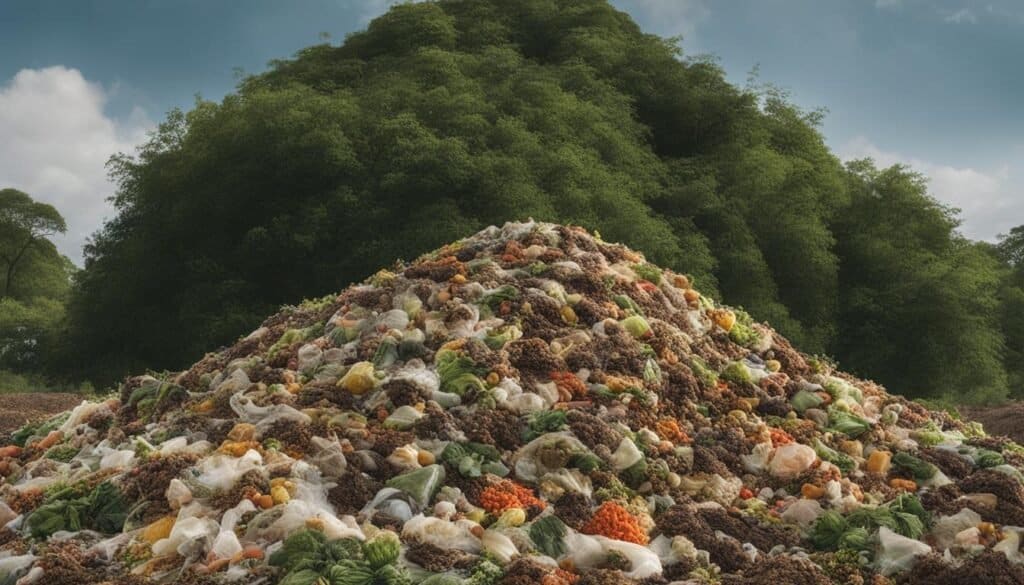
While biodegradable plastics and compostable plastics are terms often used interchangeably, it’s essential to know the differences between them. This is particularly important with plant-based plastics, as the presence of plant-derived materials doesn’t automatically denote biodegradability or compostability.
Understanding the Difference Between Compostable and Biodegradable Plastics
Biodegradable plastics are those that can be broken down by biological processes, such as the action of microorganisms, into water, carbon dioxide, and biomass. However, this process can be slow and relies heavily on the right environmental conditions, like temperature and humidity. On the other hand, compostable plastics are a specific subset of biodegradable plastics, designed to break down under controlled compost conditions.
Compostable plastics have been designed and certified to disintegrate and biodegrade under the right conditions within a certain time frame. These conditions are typically found in industrial composting facilities, which maintain the optimal temperature, humidity, and microorganism balance required to fully break down these materials. In contrast, biodegradable plastics don’t necessarily have the same strict requirements and can break down at varying rates under various environmental conditions.
Compostable plastics: A specific subset of biodegradable plastics that break down under controlled compost conditions in a defined timeframe.
It’s essential to recognize that not all plant-based plastics inherently possess these biodegradable or compostable properties. Proper sustainable packaging should include certified compostable products to ensure reliable end-of-life management and effective plastic degradation.
- Biodegradable plastics: Capable of breaking down via biological processes but with variable timeframes and conditions.
- Compostable plastics: Subset of biodegradable plastics, designed to break down under controlled compost conditions within a specific timeframe.
In conclusion, understanding the distinctions between biodegradable and compostable plastics and seeking out certified compostable products when purchasing plant-based plastic packaging are essential steps toward better environmental stewardship.
The Current State of Plant-Based Plastics in the Packaging Industry
Plant-based plastics are revolutionizing the world of packaging, offering more eco-friendly and sustainable options for consumer packaging. They are increasingly prevalent in single-use plastics like deli containers, cutlery, cups, and bottles, signaling a promising future for this innovative material.
Plant-Based Plastics in Consumer Packaging: Present and Future
As consumer awareness of plastic pollution grows, so too does the demand for sustainable packaging solutions. Brands like TIPA have responded by creating compostable packaging for various food items, demonstrating the potential for plant-based plastics to minimize the environmental impact of packaging. These sustainable packaging solutions utilize plant-based packaging materials designed to replace flexible packaging and single-use plastics.
Thomasnet.com highlights that plant-based packaging, like cellulose film, can degrade significantly faster than traditional plastic packaging. Uncoated cellulose film packaging degrades in 28-60 days, while coated versions take 80-120 days.
“Plant-based plastics pave the way for a sustainable packaging industry, combining food-safe materials with eco-friendly practices.”
How Plant-Based Plastics Are Shaping Sustainable Packaging Solutions
Plant-based plastics offer versatile options for product packaging, with bioplastic innovation enabling new applications in food packaging without compromising performance. Furthermore, these eco-friendly materials are increasingly available in the form of compostable packaging, reducing the reliance on single-use plastics and aligning with environmental goals:
- Reducing plastic waste: As an alternative to single-use plastics, compostable packaging combined with conscientious waste management minimizes the plastics that end up in landfills, oceans, and other ecosystems.
- Resource conservation: Made from renewable resources such as crop-based feedstocks, plant-based plastics conserve finite fossil fuels while also reducing the carbon footprint of the packaging industry.
- Food-safe materials: Compliant with food safety regulations, plant-based plastics in sustainable packaging maintain freshness, quality, and integrity while reducing environmental harm.
| Application | Description | Materials |
|---|---|---|
| Food packaging | Used for items like deli containers, snack bags, and produce bags | Compostable bioplastic films derived from plant-based materials |
| Single-use plastic alternatives | Encompasses cutlery, plates, cups, and more | Biodegradable or compostable plant-based plastics |
| Flexible packaging | Applied in products that require flexibility for sealing, wrapping, or other packaging functions | Biodegradable, compostable, or otherwise eco-friendly plant-based materials |
The wide-ranging applications and rapid advancements in bioplastic innovation create an optimistic outlook for plant-based plastics in the packaging industry. By transitioning to sustainable packaging solutions that rely on eco-friendly materials and proper disposal practices, we can make significant strides in mitigating plastic pollution and protecting our planet.
Challenges and Limitations in the Production and Utilization of Plant-Based Plastics
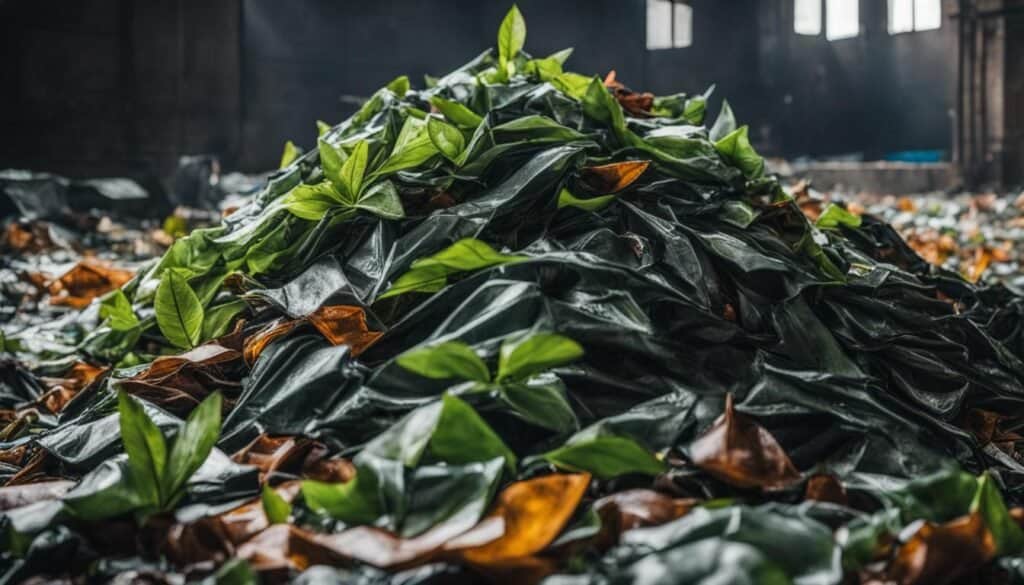
While plant-based plastics hold great potential for sustainable production and environmental conservation, they face several challenges and limitations. Factors such as high production costs, durability issues, and market presence impact their widespread adoption.
Significant obstacles in plant-based plastics production and utilization must be overcome for these materials to become a mainstream solution.
High production costs can restrict the availability of plant-based plastics. The development and processing of renewable resources into bioplastics are currently more expensive than conventional plastic production. Rising costs in the production chain, from initial agricultural cultivation of biomass feedstock to conversion into polymer resins, contribute to these challenges.
Another barrier to broad adoption is the limited usage of plant-based plastics due to sensitivity to heat and moisture. Many bioplastics have narrower temperature ranges for maintaining their forms and are often less resistant to moisture than traditional plastics. This restricts their use in various applications, such as food packaging and other sensitive settings.
Further challenges arise from the small market share of plant-based plastics in the global plastic market. Petroleum-based plastics continue to dominate due to their lower production costs and broader range of applications, leaving plant-based plastics with a limited share of the market.
As for environmental concerns, some bioplastics may still pose negative effects despite their renewable origins. For instance, if plant-based plastics end up in landfills, the anaerobic breakdown can lead to methane emissions, a potent greenhouse gas. Thus, proper waste management strategies must be implemented to ensure the eco-friendly benefits of bioplastics are realized.
- High production costs
- Limited usage due to durability concerns
- Small market share
- Environmental concerns
Ultimately, various challenges and limitations must be addressed to ensure the more widespread adoption of plant-based plastics in the packaging industry. Stakeholders must work together to develop more cost-effective production processes, improve bioplastic durability, increase market share, and establish proper waste management for plant-based plastics to fully realize their environmentally friendly potential.
Innovations in Plant-Based Plastic Packaging: A Glimpse into the Future
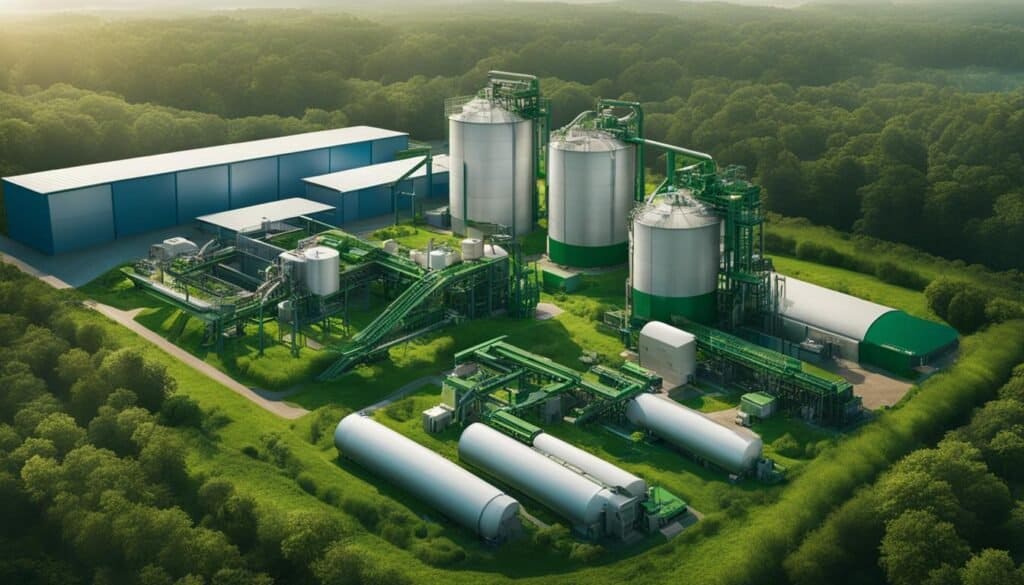
As the demand for sustainable packaging solutions grows, innovations in plant-based plastic packaging look towards improving waste management and recycling processes. Developing a closed-loop system is essential for the transition toward more eco-friendly packaging and minimizing environmental pollution.
One of the key focuses is on enhancing proper composting practices and increasing the number of industrial composting facilities worldwide. Proper disposal and composting are instrumental in ensuring that plant-based plastics decompose completely. This approach prevents them from causing harm to the environment and contributes positively to overall sustainability.
Waste Management and Recycling: Closing the Loop on Plant-Based Plastics
To fully reap the benefits of plant-based plastics, it is crucial to establish efficient waste management and recycling practices that close the loop on the plastic lifecycle:
- Waste sorting and collection: Separate plant-based plastics from traditional petroleum-based plastics to ensure the right treatment and recycling processes are applied.
- Composting: Encourage the use of industrial and home composting facilities, where plant-based plastics can safely decompose without causing environmental pollution.
- Recycling: Invest in research and technology to recycle plant-based plastics effectively, further decreasing the environmental impact.
With these approaches in place, plant-based plastic packaging truly has the potential to become a sustainable alternative with minimal environmental impact. Collaboration between manufacturers, consumers, and government authorities will be essential in driving the necessary change and innovation.
“Innovation in plant-based plastic packaging and waste management practices has the potential to revolutionize the packaging industry and help us move towards a more sustainable future.”
It is clear that plant-based plastics are becoming an increasingly important part of the effort to create a more sustainable packaging industry. By promoting responsible waste management practices, investing in recycling and composting infrastructure, and developing innovative materials, we can successfully reduce our dependence on non-renewable sources and move towards a greener future.
The Role of Corporate Responsibility and Regulations in Plant-Based Plastic Usage
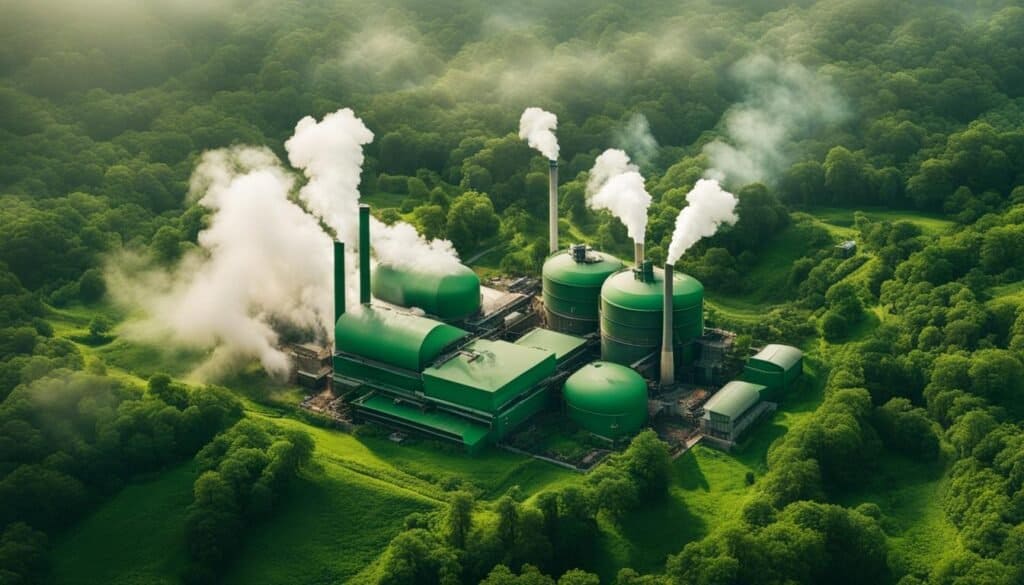
In recent years, corporate responsibility and sustainability regulations have played a crucial role in driving the shift towards sustainable packaging materials like plant-based plastics. One key concept gaining traction in this area is extended producer responsibility (EPR), which has a direct impact on the overall sustainability of packaging industry practices.
Extended Producer Responsibility and Its Impact on Sustainable Packaging
Extended producer responsibility (EPR) is a principle that holds manufacturers accountable for the costs associated with recycling and managing their packaging waste. This approach helps to reduce the environmental impact of packaging materials by incentivizing companies to develop more sustainable packaging solutions and support recycling initiatives.
Under EPR, the responsibility of managing packaging waste is shifted from consumers to producers, leading to a more coherent and efficient waste management system. Producers are encouraged to incorporate sustainable packaging materials and optimize their design to reduce waste and simplify recycling.
“EPR incentivizes companies to support recycling initiatives, thereby driving improvements in sustainable packaging practices and potentially reducing plastic waste.”
Nestle Waters, for example, has implemented EPR principles to promote recycling and reuse of its plastic bottles. The company is committed to increasing the use of recycled PET plastic in its packaging and ultimately achieving 100% recyclable or reusable packaging by 2025.
Alongside EPR, emerging sustainability regulations are driving companies to minimize their environmental footprint and consider alternative packaging materials like plant-based plastics. These regulations can be leveraged to foster corporate responsibility and shift the focus toward a more environmentally conscious industry.
- EPR policies and frameworks encouraging recycling and the implementation of take-back schemes.
- Increasing the percentage of recycled content in packaging materials.
- Setting packaging reduction targets and using lifecycle assessments (LCAs) to identify areas for improvement.
- Investing in research and development of sustainable packaging materials, including plant-based plastics.
With corporate responsibility and sustainability regulations fostering a more eco-conscious approach to packaging, plant-based plastic usage is poised to gain momentum. Companies that embrace their responsibility to minimize environmental impact will be better equipped to meet the demands of ever-evolving sustainability regulations while paving the way for a greener future.
Consumer Perception and the Market Growth of Plant-Based Plastic Alternatives
In recent years, public attention on plastic pollution has skyrocketed, leading to an increased consumer demand for sustainable alternatives. This awareness has accelerated the growth of the plant-based plastic market, as more people seek out solutions to address their concerns regarding the environment. As a result, businesses have capitalized on this trend, introducing biodegradable and compostable materials into the packaging industry.
Marketing buzzwords, such as “plant-based” and “compostable,” have begun to resonate with environmentally conscious consumers. However, it’s essential to understand that the actual environmental benefits of these products are heavily dependent on their lifecycle management. Without proper disposal and decomposing processes in place, the ecological impact of these solutions becomes limited.
“Consumers are driving changes in the packaging industry, seeking products that are kinder to the environment while still delivering the performance and convenience they expect.”
Let’s take a closer look at some of the key drivers behind the market growth of plant-based plastic alternatives:
- Increasing Plastic Pollution Awareness: As public awareness of plastic pollution grows, consumers are becoming more conscious of the environmental impact of their choices, leading to a demand for more sustainable options.
- Media Influence and Legislation: Governments and media outlets are also driving this market growth by highlighting the urgent need to develop eco-friendly solutions to combat plastic pollution.
- Shift in Corporate Behavior: Large corporations have begun to recognize the need to incorporate sustainable alternatives in their packaging, both for their environmental benefits and positive market response.
Although the overall growth of the bioplastics market is undeniably backed by the promise of sustainability and a reduction in single-use plastics, it is crucial for consumers to understand the full lifecycle of these products. By doing so, we can continue to drive demand for genuinely sustainable alternatives and help eliminate plastic pollution in the long run.
Conclusion on Bioplastics
Our journey towards sustainability with plant-based plastics highlights the significant strides being made in the realm of eco-friendly packaging. By harnessing renewable materials and reducing our dependence on petroleum-based plastics, we can make a positive impact on the environment and support sustainable initiatives. The careful management of biodegradable plastics and their lifecycles is crucial for ensuring the long-term environmental benefits of these innovative materials.
To take an active role in supporting the shift to plant-based plastic packaging, we can make eco-conscious choices in our everyday lives. By prioritizing the purchase of certified compostable products and encouraging proper waste and plastic recycling practices, we help drive the demand for sustainable packaging solutions. We can also advocate for corporate responsibility, urging companies to adopt environmentally responsible material usage and recycling programs.
With environmental stewardship at the forefront of our actions, we can collectively contribute to the global sustainability movement. Plant-based plastics offer a promising pathway towards a more sustainable future, and together, we can support the growth of eco-friendly packaging alternatives and make a lasting positive impact on our planet.
FAQ on Plant-Based Plastics for Sustainable Packaging
Q: What is the significance of sustainability in the context of plant-based packaging?
A: Sustainability refers to the ability of a process or product to maintain itself over certain periods of time. When it comes to plant-based packaging, sustainability refers to the production of packaging materials in an environmental and resource-friendly manner. Using plant-based plastics for packaging reduces the reliance on fossil-based plastics, which often leads to significant environmental pollution in their extraction, production, and disposal stages.
Q: How does plant-based packaging impact on marine life?
A: Conventional plastics that degrade poorly have a serious impact on marine life. Animals often mistake plastic products for food, which can cause severe health problems. Plant-based plastics degrade more quickly and safely compared to their conventional counterparts, thus posing less risk to marine life.
Q: What are some commonly used packaging materials in the plastic industry?
A: The most common plastic products used in packaging are made from fossil fuels and include materials such as Polylactic Acid (PLA), Polyethylene Terephthalate (PET), and Polypropylene (PP). These petroleum-based plastics like PET dominate the market but are associated with multiple environmental issues, notably plastic waste that ends up in oceans.
Q: What are the types of plant-based packaging available in the market?
A: There are primarily two types of plant-based packaging materials: polylactic acid (PLA) and Polyhydroxyalkanoates (PHA). PLA is made from fermented plant starch and is used for food service ware, while PHA is made by microorganisms fed with plant sugars and is used for agricultural films and other applications. Both types are applied to make new plastic packaging through specific plastic polymers transformations.
Q: What are the benefits of plant-based packaging?
A: Plant-based packaging has several benefits. Firstly, it reduces the amount of plastic made from fossil fuels, which in turn reduces greenhouse gas emissions. Secondly, plant-based plastics are made from renewable materials, making them more sustainable. Thirdly, some types of plant-based plastic materials have the built-in ability to degrade faster than traditional plastics, reducing ocean plastic pollution.
Q: Are plant-based plastics a viable solution to less plastic waste?
A: Yes, plant-based plastics are a viable solution to reduce the amount of plastic waste. They can be designed to be both recycled and compostable, reducing the volume of waste that ends up in landfills or the environment. Moreover, the feedstock for plant-based plastics are renewable, cutting down the need for non-renewable fossil fuels.
Q: How does the U.S figure in the global plastic waste crisis?
A: The U.S is literally one of the biggest contributors to the global plastic waste problem. It is reported that millions of metric tons of plastic waste is generated annually, much of which ends not in recycling facilities, but in landfills and environment.
Q: How are bioplastics made?
A: Bioplastics are made from plant materials like corn starch, potato starch, and other biomass materials. The process involves fermentation of these materials to produce lactic acid, which is then used to produce polylactic acid (PLA), one of the common types of bioplastics. Unlike traditional plastics, which are made from fossil fuels, bioplastics are derived from renewable resources and can be industrially composted.
Q: What is the role of packaging products in the world’s plastic problem?
A: Packaging products make up the majority of the world’s plastic consumption. The primary problem with such products is their end of life disposal. Recyclable plastic often ends up as litter in the environment causing a host of problems, particularly for marine life. Furthermore, the processing of recycled plastic also poses environmental challenges due to the energy and resources consumed.
Q: Are plant-based plastics more expensive to produce than traditional plastics?
A: The production cost for plant-based plastics has traditionally been higher than for conventional, petroleum-based plastics. This cost is due to several factors including the complexity of the production process, the cost of raw materials, and the relatively small scale of production in current bioplastic facilities. However, as technology improves and the scale of production increases, the cost of plant-based plastics is expected to become more competitive.

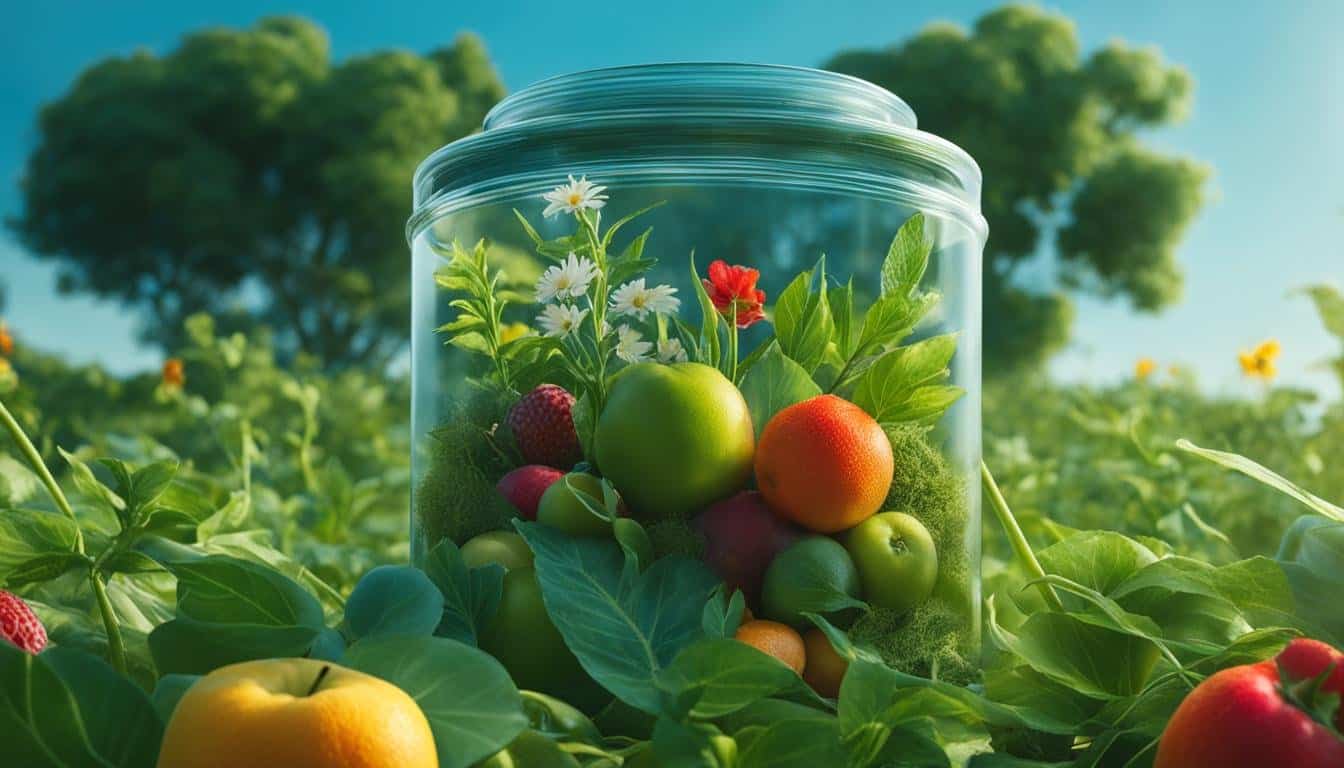


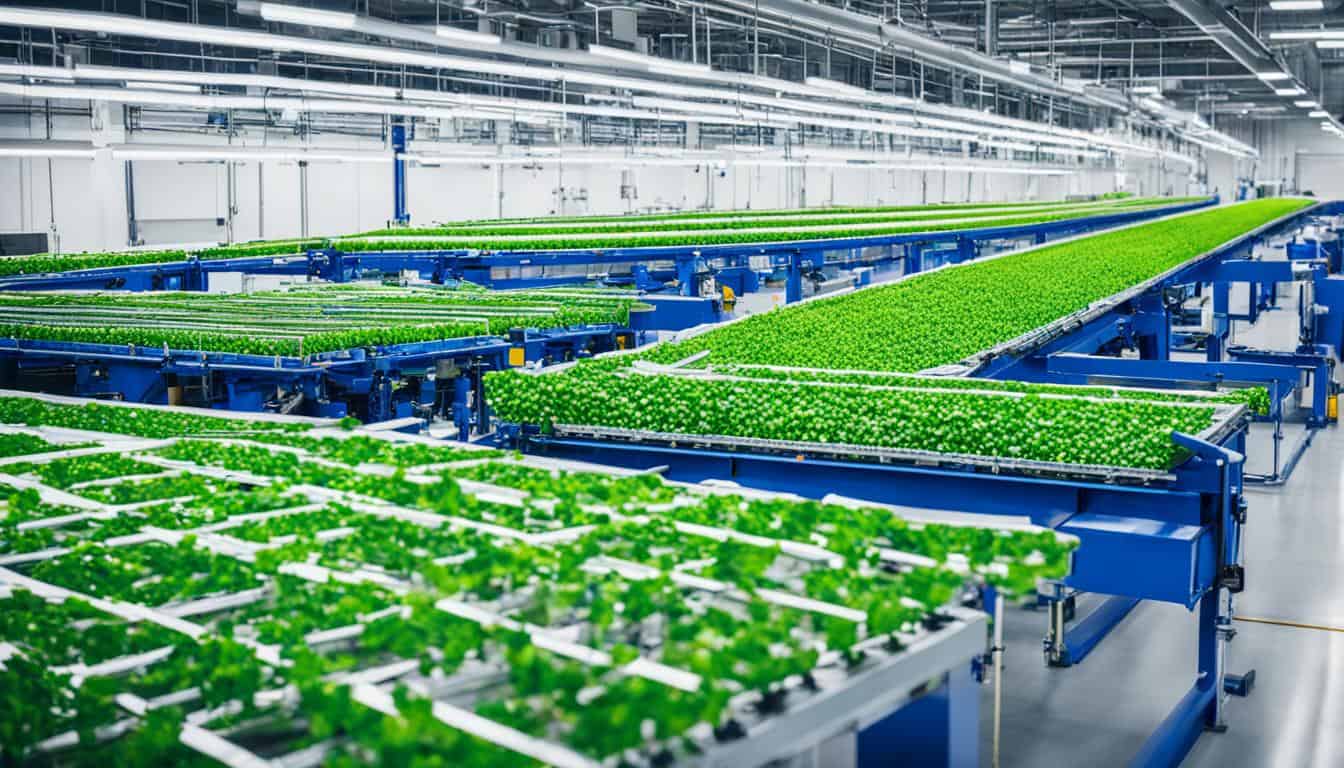
Leave a Reply